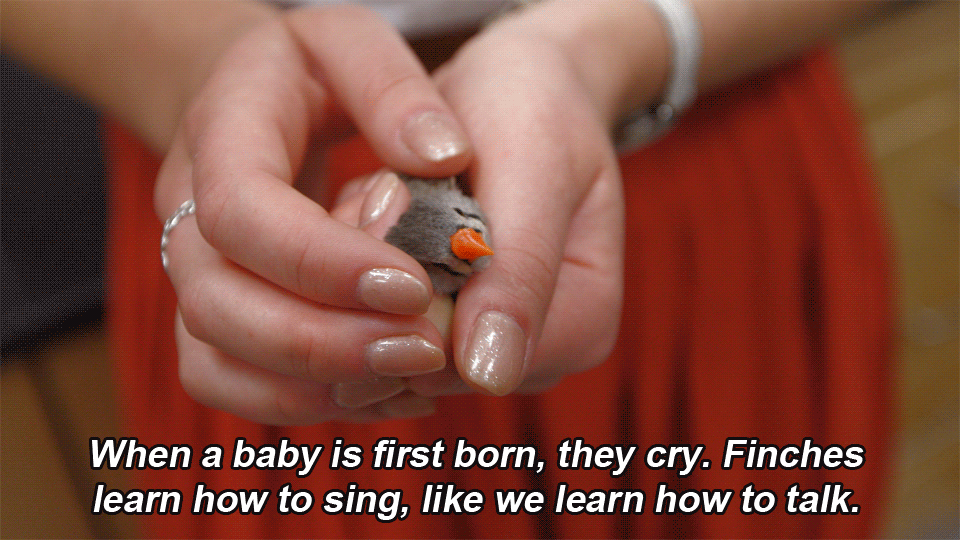This week on “TechKnow,” we meet 18-year-old Petra Grutzik from Manhattan Beach, Calif., who recently was recognized at the 2014 Intel International Science and Engineering Fair for her research on a protein called FOXP2 and its link to speech disorders.
FOXP2 is found in both human brains and songbird brains. Songbirds learn to sing through social interaction the way humans learn to talk, and FOXP2 is expressed similarly in both. With the help of mentor professors from UCLA’s Neuroscience Lab in the Department of Integrative Biology and Physiology, Grutzik conducted research over two years to determine how various levels of this protein affects the quality of communication through speech.

“When a baby is first born, they cry,” Grutzik explains. “Finches learn how to sing, like we learn how to talk. FOXP2 is involved in speech development in humans and in songbirds. Scientists study FOXP2 in songbirds so they can learn more about it in humans.”
“It is the only single gene that, when mutated, results in a human speech and language disorder,” says UCLA’s Dr. Stephanie White.
“We have excellent undergrads at UCLA,” says Dr. Nancy Day, Grutzik’s mentor at UCLA. “But there’s something special about Petra. We saw it as an excellent opportunity to embrace this eager young woman so that we could not only challenge her but she could challenge us. Petra has infused an energy into the lab that we didn’t have before.”
Grutzik also tapped into her background in robotics to design and build a cage for the finches that was long enough and had two separate chambers in which she could conduct her testing on the birds.
Grutzik's father would bring her to lectures at Caltech when she was a child. “My dad would encourage me to ask questions,” she says. “He really helped my curiosity bloom. I’ve always been fascinated with the brain—the brain is such a mystery.”
Grutzik graduated from Redondo Union High School as valedictorian of her class. In addition to a heavy load of academics and year-round club volleyball, she spent as many as 10 hours a week at UCLA. She founded a club called RED Talks—a classroom version of TED Talks that invited scientists, mathematicians and entrepreneurs to speak to students. She also won first place in the zoology division of the California State Science Fair as well as an award from the American Psychological Association.
Grutzik will attend Stanford in the fall, which she chose in part because of its strong interdisciplinary research. “Being an expert in one’s field isn’t enough anymore,” says “TechKnow” contributor Crystal Dilworth, who recently earned her PhD in molecular neuroscience from Caltech. “Petra’s already got that handled.”
“It’s been so inspiring to meet amazing women like Dr. White and Dr. Day,” Grutzik says. “It enables me to see myself in a lab. It enables me to see myself in science when I grow up.”
Watch “TechKnow” Saturdays at 7:30 p.m. ET/4:30 p.m. PT.
Error
Sorry, your comment was not saved due to a technical problem. Please try again later or using a different browser.